Search
Did you mean: Gades?
Summary 
Loading AI-generated summary based on World History Encyclopedia articles ...
Search Results

Article
Egyptian Gods - The Complete List
The gods and goddesses of Ancient Egypt were an integral part of the people's everyday lives for over 3,000 years. There were over 2,000 deities in the Egyptian pantheon, many whose names are well known - Isis, Osiris, Horus, Amun, Ra, Hathor...
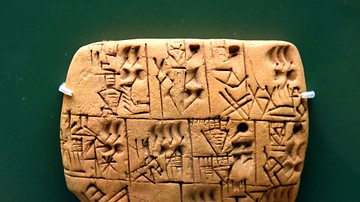
Article
The Hymn to Ninkasi, Goddess of Beer
The Hymn to Ninkasi is at once a song of praise to Ninkasi, the Sumerian goddess of beer, and an ancient recipe for brewing. Written down in c. 1800 BCE, the hymn is no doubt much older as evidenced by the techniques it details which scholars...
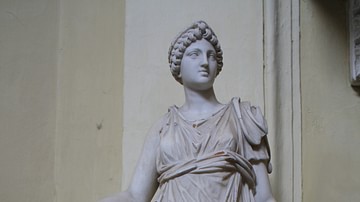
Article
Hygieia, the Goddess of Health
Modern medicine has its origin in the ancient world. The oldest civilizations used magic and herbs to cure their sick people, but they also used religion to free them from harm and to protect their health. The medical care of today has its...
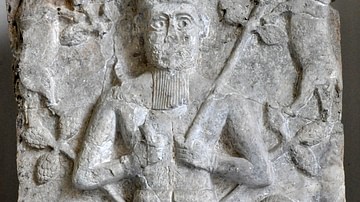
Article
The Mesopotamian Pantheon
The gods of the Mesopotamian region were not uniform in name, power, provenance or status in the hierarchy. Mesopotamian culture varied from region to region and, because of this, Marduk should not be regarded as King of the Gods in the same...
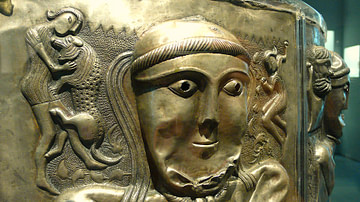
Article
The Ancient Celtic Pantheon
The ancient Celtic pantheon consisted of over 400 gods and goddesses who represented everything from rivers to warfare. With perhaps the exception of Lugh, the Celtic gods were not universally worshipped across Iron Age Europe but were very...
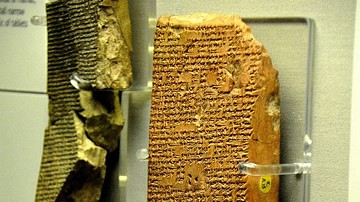
Image
Goddess Ishtar descent to the underworld tablet
The legend, written in Akkadian, describes how Ishtar, goddess of sexuality and warfare, went to the Underworld. Ishtar decided to undertake the journey, although the Underworld was known as the 'land of no return' for humans and gods alike...
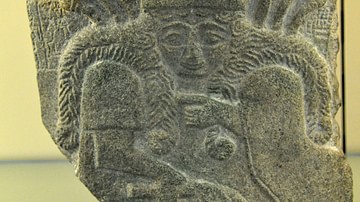
Image
Goddess Nisaba
A fragment of a vase with a depiction of the goddess Nisaba (also Ninibgal or Nidaba), goddess of writing, learning, and the harvest. The cuneiform inscription on the vase mentions the name of Entemena, ruler of Lagash. Chlorite. From Mesopotamia...
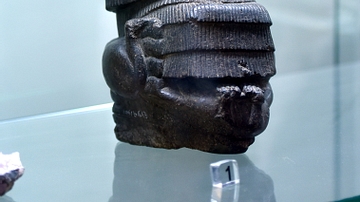
Image
Goddess Bau from Ur
Statue of a seated goddess, Bau (Nintinugga), from the Ningal Complex at the city of Ur, Iraq. Isin-Larsa period, c. 1800 BCE. Bau was the consort of the god Ninurta and the goddess of healing. On display the Iraq Museum in Baghdad, Republic...
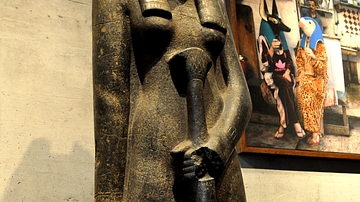
Image
Goddess Sekhmet Statue
Granite standing figure of goddess Sekhmet. From goddess Mut temple at Karnak, modern-day Egypt. New Kingdom, 19th Dynasty,circa 1250 BCE. (State Museum of Egyptian Art, Munich, Germany).
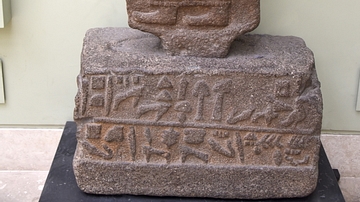
Image
Goddess Kubaba
This image shows two objects: The free-standing basalt stele depicts the goddess Kubaba, consort of the storm god Teshub, and one of the most important deities at the city of Carchemish. Kubaba stands below a winged-disc and holds a pomegranate...